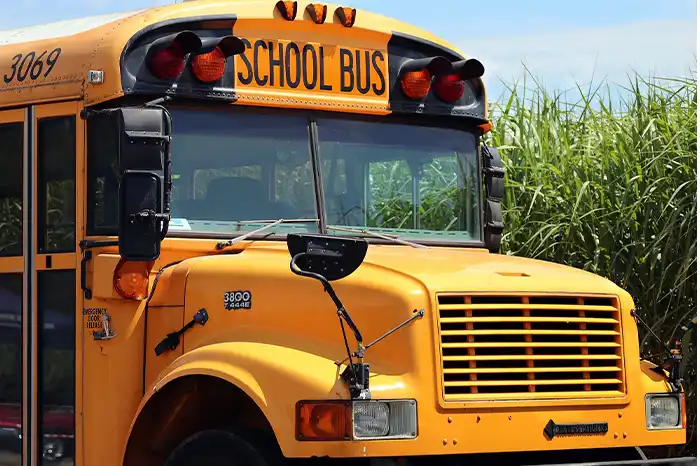Understanding the importance of choosing the right school when relocating with children is crucial for the stability and well-being of your family. School plays a significant role in a child’s development, social skills, coping skills, and academic achievement.
5 Things to Consider When Choosing the Right School for Your Child
Selecting an appropriate school can ease the transition and ensure a nurturing environment for your child as they adapt to new surroundings.
1. Evaluate Education Quality
About 35.5 million Americans move each year, and for families with children, the quality of education in the new location is often a primary concern. Quality education is rooted in a challenging curriculum, qualified teachers, and a robust school system. Parents should research and prioritize schools with high academic performance, proven teaching methodologies, and a track record of preparing students effectively for future academic and professional endeavors.
In assessing education quality, standardized test scores, graduation rates, and college admission statistics are valuable metrics. However, it is equally important to consider feedback from current students and parents. A school that successfully balances high academic standards with creative learning opportunities will likely support the holistic development of each child in your family.
Your family’s needs and expectations should guide your selection of a school with a curriculum that aligns with your educational values. Additionally, evaluating the diversity and inclusivity of schools can also offer insights into an institution’s commitment to providing an equitable education. Ultimately, investing time in researching education quality can contribute to long-term satisfaction and achievements for your child.
2. Assess School Atmosphere

The school atmosphere is a vital factor that influences a child’s comfort and success in a new environment. A welcoming and positive school culture can significantly enhance students’ engagement and emotional well-being. Visiting schools and observing daily routines can provide a sense of their atmosphere, helping families align their values with the institution’s ethos.
Consider the student-to-teacher ratio, as smaller class sizes can foster more personalized attention and stronger teacher-student relationships. Interactions in classrooms and common areas can reveal much about the school’s climate and peer dynamics. Families should seek schools that promote inclusivity, respect, and community engagement, ensuring that their children feel valued and supported.
A school atmosphere that nurtures creativity, collaboration, and critical thinking can inspire students to thrive both academically and socially. Parents can consult school reviews and ratings, as well as connect with fellow parents to gain insights into their experiences. Assessing the atmosphere is about ensuring compatibility between the school’s culture and your family’s values, creating an optimal environment for growth.
3. Discover Extracurricular Activities and Facilities
Extracurricular activities are integral to a well-rounded education, offering opportunities for children to explore interests beyond academics. According to the CDC, children who engage in regular physical activity are 40% more likely to maintain a healthy weight and perform better in school. Schools with a variety of extracurricular options — from sports and arts to clubs and service projects — can greatly enhance a child’s educational journey.
Facilities such as libraries, laboratories, gyms, and art studios also contribute to the quality of the extracurricular experience. When assessing schools, families should prioritize institutions with facilities that support their children’s passions and learning styles. A comprehensive extracurricular program can foster teamwork, leadership, and time management skills, enriching your child’s personal and academic life.
Furthermore, extracurricular activities offer a platform for social interaction and can help children make new friends in an unfamiliar environment. Parents should inquire about the qualifications and dedication of coaches and club advisors, ensuring that the programs maintain a high standard. Ultimately, exploring and engaging in extracurricular activities can be a transformative experience that complements formal education.
4. Access to Support Services
Support services play a crucial role in catering to the diverse needs of students within a school environment. Schools equipped with counseling, special education, and tutoring services can address a range of academic and personal challenges. Families should prioritize schools that demonstrate a commitment to supporting students from diverse backgrounds and abilities.
Well-trained counselors can provide emotional support, guide students through career planning, and assist with social challenges. Special education services ensure that students with unique needs receive the accommodations and modifications necessary for their success. Moreover, tutoring services can offer supplementary assistance to students who require extra academic support, reinforcing their confidence and competence.
Part of assessing support services involves understanding how schools communicate with families and collaborate to meet student needs. A proactive approach in engaging with support services can facilitate a holistic development environment for your child. Remember, comprehensive support networks within schools can greatly contribute to a positive and thriving educational experience for your family.
5. Consider Location and Commute

Location and commute are central considerations when selecting a school, as they directly impact daily routines and family dynamics. Proximity to your home can ease logistics, reduce travel time, and allow children additional time for study and recreation. Safe and reliable transportation options, such as school buses or walking routes, should also be evaluated for convenience and security.
Given there are over 30,000 private schools in America, families have a wide array of educational environments to explore. Whether choosing between a public, private, or charter school, the accessibility and commute time should match your family’s lifestyle and preferences. Ensuring a balance between a desirable school and a manageable commute can enhance overall family happiness and cohesion.
Neighborhood quality and local amenities may also influence your decision, as they can contribute to a supportive and family-friendly community environment. The location of the school impacts the connections children make and the sense of community they develop. Making informed decisions about location and commute allows families to align their education choices with their broader life goals.
Final Words
Ultimately, choosing the right school helps establish a nurturing environment that fosters growth, learning, and happiness for your children as they embark on their new educational journey. Consider these tips as you prepare to move!





